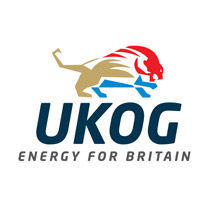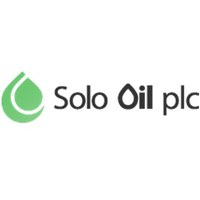Stephen Sanderson, UKOG’s Executive Chairman, commented on the Upgrade: “I am very encouraged by the report’s conclusions, particularly with respect to the significant further oil recovery that could be obtained from a simple water re-injection scheme. Such schemes are typical practice in similar reservoirs in the US, but have not been widely utilised in the Weald Basin. We will aim to buck this trend, instigate such a programme and deliver the associated material monetary reward.
Upon the expected grant of the necessary regulatory consents, the Company is fully geared to start long term production testing at Horse Hill, commencing with the Portland. Our aim is to move towards a declaration of commerciality and stable long-term production from the Portland and Kimmeridge Limestones by the end of 2018.
Horse Hill is nicely poised to deliver a significant positive impact to the Company. The year ahead will be an exciting one. “
Upgrade to Portland Oil Resources, Horse Hill Oil Discovery, PEDL137, Weald Basin, UK
Highlights
— Xodus calculate Portland sandstone P50 Oil in Place (“OIP”) of 32 million barrels (“MMbbl”), a 53% increase from the 21 MMbbl previously reported prior to successful 2016 flow testing
-- Gross recoverable Portland 2C Contingent Resources 1.5 MMbbl -- Net UKOG attributable Portland 2C Contingent Resources 0.5 MMbbl
— Base Case Portland initial oil-rate estimated at 350 barrels of oil per day (“bopd”) per well
— Ultimate recovery could be increased by a further 8-14% of OIP via early implementation of a water re-injection scheme. If successful, this could represent a 114%-440% addition to 2C recoverable resources, equating to a further 1.7-6.6 MMbbl gross recoverable, or 0.5-2.1 MMbbl net to the Company
-- Work plans now aimed towards Portland long-term production by end 2018
UK Oil & Gas Investments PLC (LSE AIM/ISDX: UKOG) has told DirectorsTalk that a new Report by Xodus calculates the Horse Hill Portland sandstone conventional oil accumulation, in which the Company holds a 31.2% interest, to contain an OIP of 32 MMbbl, an increase of 53% from the previously reported 21 MMbbl of May 2015. The upgrade results from the incorporation of Nutech’s revised petrophysics, as reported in July 2016. As previously stated by the Company, OIP should not be misconstrued as recoverable Contingent Resources or reserves, which are detailed below.
In March 2016 UKOG reported the final Horse Hill-1 (“HH-1”) Portland test flowed at a stable dry oil rate of 323 bopd, producing light, sweet, 35 API gravity crude. The Portland was produced at the rod-pump’s maximum achievable rate and thus flow was constrained by the pump’s mechanical capacity. The test data analyses show no clear indication of depletion.
As a result of further analysis of the Portland flow test data, plus a review of similar producing fields, Xodus now assess the gross recoverable Portland 2C Contingent resources at 1.5 MMbbl. As a result, Company net attributable Portland 2C resources are assessed at 0.5 MMbbl. Calculated OIP and resources reflect oil contained in the entire Portland structure, as penetrated by the HH-1 and Collendean Farm -1 wells.
The Contingent Resource volumes given are those estimated to be attributable to primary recovery from the Portland reservoir. Results utilise a base case of three wells, draining both the Horse Hill and Collendean Farm fault blocks, each well with an initial production rate of 350 bopd.
The report also details that, for a shallow but permeable reservoir, such as the Portland, should a water re-injection scheme be undertaken to provide pressure support in the field’s early productive life, it is reasonable to expect a material increment in overall oil recovery. The successful implementation of such a scheme is estimated to lead to the recovery of an additional 8-14% of OIP, equivalent to a further 1.7-6.6 MMbbl of gross recoverable oil, and a further 0.5-2.1 MMbbl net to the Company.
A summary of the Report’s results is shown in tables 1 and 2 below. The Report’s Executive Summary is also available on the Company’s website: www.ukogplc.com
As previously reported in October 2016, HHDL submitted a planning application to Surrey County Council for an extensive HH-1 appraisal programme, including long-term production testing and a new deviated well, HH-2, designed to access the Portland in both the HH-1 and Collendean Farm-1 proven oil-bearing fault blocks.
Table 1, Portland Sandstone, gross discovered OIP MMbbl:
Horse Hill Discovery Low (P90) Best (P50) High (P10) Mean ---------------------- ---------- ----------- ----------- ----- Portland OIP MMbbl 21.5 32.2 47.4 33.5 ---------------------- ---------- ----------- ----------- -----
Table 2, Portland Sandstone, gross and net to Company Contingent Resources MMbbl
Horse Hill Portland Sandstone Gross Field - 100% Net to UKOG - 31.2% ------------------------------- ----------------------- ------------------------ Resource Category 1C 2C 3C 1C 2C 3C ------------------------------- ------- ------ ------ ------- ------- ------ Recoverable Oil MMbbl (primary recovery only)(1) 0.6 1.5 3.6 0.2 0.5 1.1 ------------------------------- ------- ------ ------ ------- ------- ------
(1) Xodus Report states recovery could likely be improved by a further 8-14% of OIP via an early water re-injection scheme
HH-1 Oil Discovery, Location and Company Interest
The HH-1 oil discovery well is located within onshore exploration Licence PEDL137, on the northern side of the Weald Basin near Gatwick Airport. UKOG owns a 31.2% interest in PEDL137 via its 48% ownership of the licence’s operator HHDL.


